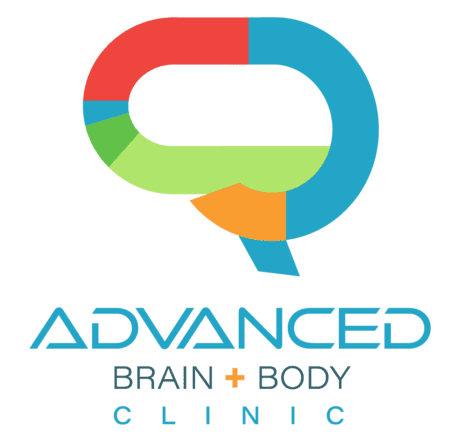For many Minnesotans, the recent legalization of recreational marijuana is very exciting news. However, there are a lot of misconceptions about cannabis and mental health. As Minnesota continues to struggle with its mental health epidemic, there are a few things that you should consider before driving to your nearest dispensary.
How Cannabis Affects Mental Health
Cannabis Use Can Worsen Existing Mental Health Conditions
If you are currently taking stimulants or have been diagnosed with psychosis, you should refrain from marijuana use altogether. If you have another mental health disorder, it is best to avoid marijuana use. If you do choose to partake, keep consumption to occasional use only because regular use is likely to worsen your mental health condition(s).
Does THC Help Anxiety?
Cannabis often helps people relax and relieve stress, so it must be good for people with anxiety, right? Unfortunately, the answer is no. While it is true that cannabis can induce an immediate reduction in anxiety, once the immediate effects wear off, people typically experience an increase in anxiety. In fact, regular cannabis use may slowly ramp up anxiety between each use.
Marijuana and Depression
Cannabis is a depressant and is known to worsen depression. At Advanced Brain and Body Clinic Ketamine TMS, we have seen depression decrease and motivation increase for many patients when they stopped using cannabis. Marijuana also worsens many other mental health conditions, such as ADHD, bipolar disorder, and any psychotic disorder, including schizophrenia.
Cannabis is Linked to Mental Illness
Everyone who plans to use marijuana should use caution, as it can have unpredictable consequences, including worsening anxiety, panic attacks, and paranoia. Effects may vary greatly from person to person and between use. Studies show that marijuana is linked to a number of mental health disorders, including depression, anxiety, and psychosis (SAMHSA).
Use Caution Before Considering Marijuana Use
Marijuana Can Be Addictive
Marijuana is mildly addictive. In adult users of marijuana, 1 in 10 people will become addicted. However, those who begin consuming marijuana before the age of 18 are at a much higher risk of addiction. 1 in 6 people will become addicted to marijuana if consumption begins before the age of 18.
If you or someone you know is struggling with addiction, please reach out to your primary care provider or a substance abuse specialist as soon as possible. View the Minnesota Department of Human Service’s list of local resources for drug and alcohol addiction.
Adderall and Weed Can Be Dangerous
Using marijuana simultaneously with stimulants can be dangerous. When Adderall and weed are used simultaneously, the effects can cancel each other out and lead to an increased need for both drugs to have the same effect. This can become a dangerous cycle, as marijuana can be mildly addictive. By taking higher doses, you may be at greater risk of developing an addiction.
How Does Weed Affect The Brain of a Teenager?
As mentioned above, those who begin using marijuana before the age of 18 are at a much higher risk for becoming addicted. In addition, parents and those under the age of 18 should be aware that marijuana can have serious long-term effects on the teenage brain. Since the brain does not finish developing until approximately the age of 25, marijuana use can affect normal brain development if used too early. Early marijuana use can lead to permanent problems with memory, learning, and judgment in adolescents.
Our Practice
If you are looking for sustained relief for depression, anxiety, PTSD, or other mental illness, your mental health provider will likely recommend stopping marijuana usage.
Our professional standard is not to mix cannabis and certain medicines. Cannabis, even for medical use, can aggravate mental health conditions, such as ADHD, anxiety and depression (as do alcohol and stimulants). An important part of what we do is manage medications for patients, which means choosing the best combinations for patient wellness.
At Advanced Brain and Body Clinic Ketamine TMS, our mental health providers work with you to help provide long-term relief for your psychiatric condition(s). This includes removing potential triggers and managing medications to ensure that you have an optimal combination that will provide the maximum benefit with the least amount of medications necessary. Covering up symptoms with medications or drugs will only result in a need to increase the amount of medication you are taking over time to have the same therapeutic effect. That’s why our goal is to get to the root of your psychiatric condition by incorporating holistic practices such as lifestyle modifications and vitamin/mineral supplements to ensure that your brain functions optimally.
If you are looking for help with anxiety, depression, ADHD, PTSD or bipolar disorder, give us a call to schedule an introductory appointment: 612-682-4912.

Stephen Manlove, MD graduated from the University of Minnesota Medical School and completed residencies in Psychiatry and Internal Medicine through the University of Virginia Medical School. He holds multiple board certifications in psychiatry/neurology, internal medicine and forensic psychiatry. This deep understanding of medicine gives him a unique ability to practice truly holistic psychiatry—fusing lifestyle changes and brain health best practices with genetic testing and a detailed laboratory workup to develop a personalized plan for each patient. As an early adopter of transcranial magnetic stimulation (TMS) and ketamine/Spravato, he and the Advanced Brain + Body team have helped thousands of patients suffering from treatment resistant depression, anxiety and PTSD.

